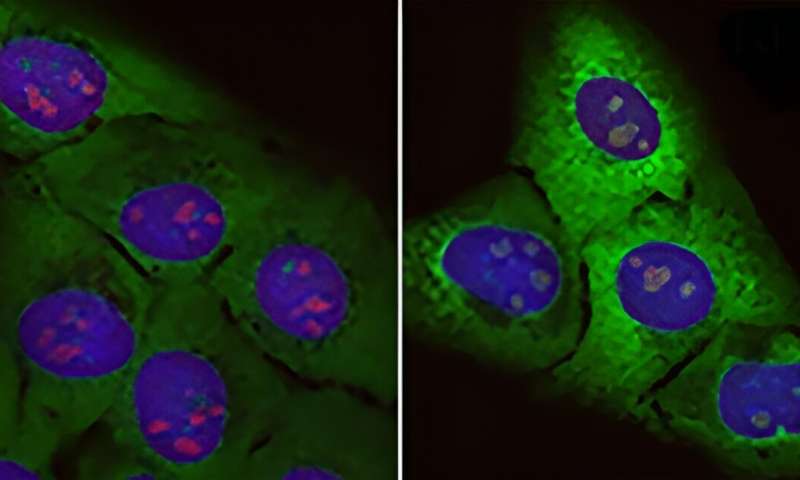Best of last week—unintended harm with organic farming, a future AI 'Borg,' junk proteins may cause aging

It was an eventful week for biology research, as a trio of environmental researchers in the U.S. found that there can be unintended harm associated with organic farming—the major one being increased pesticide use in surrounding non-organic fields, which can offset some environmental benefits. Also, a team of paleontologists at the University of Zurich discovered a new species of ancient freshwater dolphin in what is now the Amazon. They estimate that some of the creatures grew to 3.5 meters in length. And a team of oceanographers at Oregon State University, working with associates from NOAA, found evidence that hypoxic areas are widespread and increasing in the ocean off the Pacific Northwest coast.
In technology news, an international team of computer scientists suggested that the future of artificial intelligence is likely to be similar to that of the Borg of "Star Trek" fame—hinting at the possibility of a future AI collective. And a team at the University of Geneva built an AI system capable of talking to another AI system, teaching each other to become more intelligent. Also, a collaboration between the University of Cambridge, the Chinese Academy of Sciences, Xidian University, and Zhengzhou University, China, resulted in the development of two-faced solar panels capable of generating more power than conventional panels at up to 70% reduced cost. And a team of computer scientists and engineers at Apple developed a large language model that the company claimed could interpret both images and data.
In other news, an international team of researchers working on the Global Burden of Disease, Injuries, and Risk Factors Study found evidence that dramatic declines in global fertility rates in some parts of the world will almost certainly transform global population patterns by 2100. Also, a team at TMOS, the Australian Research Council Center of Excellence for Transformative Meta-Optical Systems, announced that continuous non-invasive glucose sensing is now on the horizon due to the development of a new optical sensor—they predict it will free diabetics from finger-prick tests. And finally, a team led by Óscar Fernández-Capetillo, head of the Genomic Instability Group at the Spanish National Cancer Research Center, found evidence that accumulation of 'junk proteins' in the brain is one cause of aging and may also be a source of ALS.
© 2024 Science X Network